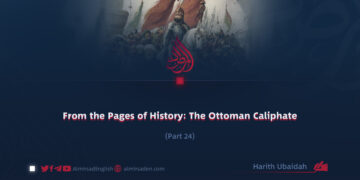Part 17
Abu Rayyan Hamidi
Continuing with the lessons drawn from the Battle of Badr, today we reflect on several further points of guidance and reflection.
10. The Reality Behind Victory in Badr
When comparing the Muslim and disbelieving armies at Badr in terms of numbers and equipment, one might wonder how victory was possible for the Muslims and what factors contributed to such a decisive triumph.
The truth is that this battle was not simply a clash of weapons, but a confrontation between faith and material power. On one side stood worldly pride, arrogance, and force. On the other stood the Almighty Lord, His Messenger, and the Companions (may Allah be pleased with them), strengthened by the essence of faith. Though they lacked advanced weaponry, they possessed what their enemies feared most: unshakable belief, steadfast conviction, and divine support from the heavens.
As the Almighty declares: “And you did not kill them, but it was Allah who killed them. And you threw not when you threw, but it was Allah who threw.” (Qur’an 8:17)
Even in the present day, adversaries of Islam fear not only its weapons, technology, and influence, but far more its enduring faith. The world witnessed how the leaders of the Islamic Emirate (IEA) and other jihad figures were subjected to sanctions, and how global powers and intelligence agencies attempted to eliminate them. Why? Because they were rooted in faith and firm creed. From that foundation emerged a strength that turned faith itself into their greatest weapon, a force capable of rendering even advanced technology ineffective.
11. Compassion and Solidarity
Alongside strong faith in Allah, another factor that leads to victory is mutual compassion, empathy, and respect among believers. One of the key reasons for divine support at Badr was that the Muslims embodied these qualities. The Qur’an reminds us:
“It is He who supported you with His help and with the believers, and He brought their hearts together. If you had spent all that is on earth, you could not have united their hearts, but Allah brought them together.” (Qur’an 8:62–63)
The Companions triumphed because they were united under a single creed: La ilaha illa Allah, Muhammadur Rasul Allah. Their aim was the complete establishment and spread of Islam. For this reason, they placed faith above kinship; a Companion would even fight against his own father, brother, or relative if they opposed Islam. Their standard was Islam itself, whether one was a free man or a slave, Arab or non-Arab. The measure was faith alone.
Their ranks tolerated no division. They stood united against disbelief, while the ranks of the polytheists were fragmented by tribalism and selfish interests, each group concerned only for its own benefit.
History shows that whenever Muslims have been united, no worldly power could halt their advance. They shook the foundations of mighty empires. Allah advises believers in this regard: “And obey Allah and His Messenger, and do not dispute with one another, lest you lose courage and your strength depart.” (Qur’an 8:46)
12. The Day of Criterion (Yaum al-Furqan)
The Battle of Badr was the day that distinguished truth from falsehood, which is why Allah Himself named it Yawm al-Furqan, the Day of Criterion. The heavens, the earth, and all that exists belong to Allah. Every decision and measure must align with His will and seek His pleasure.
At that time, however, the world was overwhelmed by falsehood. Tyrants ruled over Allah’s creation, oppressing them and extinguishing the light of truth. Badr marked the beginning of the downfall of this falsehood. It was the first decisive strike against tyranny, a decline from which it never recovered.
In simple terms, Badr dismantled the banner of shirk and replaced it with the light of tawheed. Polytheism was defeated, and the oneness of Allah triumphed.
13. Islam Is Not Merely a Slogan
The Battle of Badr proved that the establishment of truth in human society cannot be achieved through mere slogans or verbal rejection of falsehood. Words and beliefs alone are insufficient. What is required is practical action, sacrifice, and a willingness to confront falsehood directly. The false deities must be destroyed, and the true Lord must be elevated.
This is precisely what the warriors of Badr accomplished. For this reason, that day is rightly remembered as Al-Furqan, the Day of Criterion.


















































